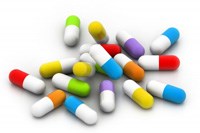
Top stories






More news


ESG & Sustainability
#Sona2026: President announces crisis committee to tackle SA's water challenges












While IMS, the international pharmaceutical research company, calculates the private pharmaceutical market in South Africa to be approximately R20 billion per year, there is scope for vast savings in medicine costs. Their research indicates the average price of branded drugs is R213 as opposed to generic medicines at R68. Based on these figures the substitution of a generic medicine for a branded product would lead to a saving of up to R145 per item.
The Council for Medical Schemes shows in its annual report released in September that expenditure on medicines increased by 7.8% or R1,1 billion in 2012. As the increase of the single exit price of medicines was limited to 2.14% this increase indicated an increased volume of medicine sold. Generic medicines grew 11.7% (R734 million) versus 2.7% (R317 million) growth of branded products strongly suggesting an increase in access to medicines by patients.
The Association believes that there is still much greater scope for the growth of generic medicines as 70% of expired branded patents have been genericised, but only about 55% of generic medicines by volume are being regularly prescribed. By broadening the use of generic medicines, still more substantial savings can be achieved.
An aspect which slows the adoption of generic medicines is the perception among both healthcare professionals and patients that generic medicines are "cheap" and thus inferior copies of the originals. This is incorrect and probably results from a lack of knowledge regarding the registration and manufacture of generic medicines.
Generic medicines are required to be manufactured according to the same stringent standards as branded medicines. The standards known internationally as "Good Manufacturing Practice" are implemented in all licensed manufacturing facilities, whether originator or generic plants.
No generic medicine may be sold in South Africa unless it receives approval from the Medicines Control Council (MCC). The MCC does not discriminate between originator and generic medicines when evaluating a drug and the strictest scientific principles are adhered to in the approval process. This process is on a par with that used by the US Food and Drug Administration and the European Union's European Medicines Agency.
An argument of sub-standard active ingredients in generic medicines is unfounded as they must conform to the same amount and strength of the active ingredient, have the same dosage form, effectiveness, quality and safety as the original.
The somewhat lengthy registration period of generics in South Africa can lead to greater confidence in their use by the public as many hundreds of thousands of patients worldwide would have been treated by the medicines by the time approval was gained in this country. Any problems relation to the drug would have been exposed by the improved pharmaco vigilance systems implemented by the manufacturers to detect adverse reactions.
The concept that generic medicines are not tested in patients is also fallacious. Generic medicines are tested through a system called bioequivalence, whereby the generic medicine is administered under strict clinical procedures to a group of people whose blood is tested for the amount of active substance at certain intervals. The same procedure is used with the branded drug on the sample of people and the results compared. If there is a significant variance in results the generic medicine would not be licensed.
As the healthcare needs of the country grow, the need of safe, affordable and effective medicines will increase and generic drugs will ensure these parameters are met.